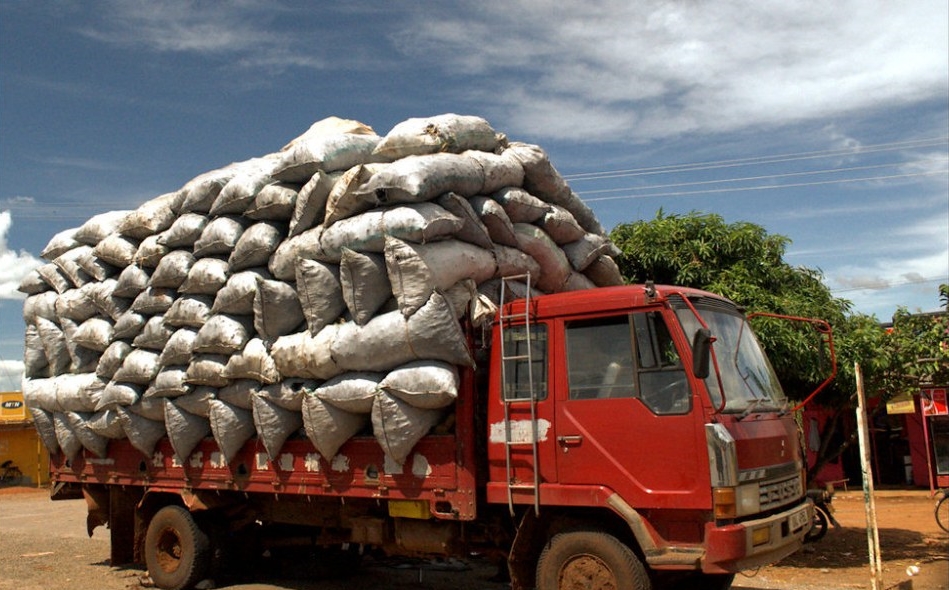The Nasarawa State Ministry of Environment and Natural Resources on Friday, February 18, impounded over 30 trucks of charcoal in the state.
The state Commissioner for Environment and Natural Resources, Yakubu Kwanta, made this known while addressing newsmen after supervising the trucks in Uke, Karu local government area of the state.
Recall that the state government had in 2021, banned the use of charcoal in commercial quantity to protect forest reserves and their resources.
Announcing the ban, the Permanent Secretary, Ministry of Environment and Natural Resources, Mr Aliyu Agwai said that the process of producing charcoal contributes to the destruction of the environment and increases global warming.
“Cutting trees can result in the loss of habitat for animal species, which can harm the ecosystems,” he said. “Almost all the land animals and plants live in forests and many cannot survive the deforestation that destroys their homes”.
While lauding residents of the state for the level of compliance with the sensitisation programme on environmental sanitation, he warned those selling and using charcoal to desist to avoid prosecution in case of violation.
Reacting to the latest arrest, Kwanta described those breaching the directive of the state government as unpatriotic elements who were bent on destroying forests not considering the adverse effects of climate change.
The commissioner maintained that illegal lumbering continues to threaten the existing forest reserves across the state, adding that the state government was not going back on its directive that anyone caught would face the full wrath of the law.
He said the ministry has so far nabbed violators at Akwanga, Lafia and Karu transporting charcoal from different parts of the state.
Read also: Nigerian govt says climate change putting pressure on natural resources
Over-dependence on charcoal/fuelwood
Fuelwood and charcoal remain the most heavily consumed energy sources in Nigeria, with rural dwellers who are the custodians of forests resources depending solely on it for livelihood and increase in demand for charcoal.
Nigeria ranks among the highest producer of charcoal in Africa and the world and the production trend of charcoal in Nigeria has over the years shown a steady increase, with more than 80% of households depending on it for their cooking.
Available statistics show that the nation’s 15 million hectares of forest and woodland reserves could be depleted within the next fifty years.
Globally, 2.9 billion people in developing countries still use traditional fuels such as firewood, charcoal, crop residues and animal dung to make their food on open fires and data from the UN on climate change shows that the smoke from cooking fires account for eight deaths every minute globally, impacting mostly women and children.
This is even with the health problems arising from smoke inhalation, including respiratory infections, eye damage, heart and lung disease, and lung cancer which are significant causes of death in both children under five and women.
Why fuelwood?
According to Dr Nnaji Chibueze of the Centre for Energy Research and Development at the University of Nigeria, Nsukka, there is an increasing dependence on fuelwood because it is a cheaper means of cooking food for large families, especially in rural areas.
He added that old and middle age rural women are addicted to the use of fuelwood because food tastes different when cooked with something else, adding that the educational background of women is another factor that encourages women.
“Those with a low educational background such as primary school and lower levels tend to use more fuelwood. Most of them lack access to credit facilities which would have empowered them to seek alternative fuels for cooking” he said.
Way forward
On the way forward, Chibueze believes that a holistic policy design by the government that will improve the income and sociological status of poor households, as well as access to cheaper alternative energy sources for cooking, will reduce dependence on fuelwood.
“Availability of woodlots and access to alternative, affordable, renewable energy systems would reduce the pressure on the forests and the amount of time and efforts women devote to obtaining fuelwood. Provision of access to credit will help empower women to seek alternative supply of cooking fuel,” he said.
